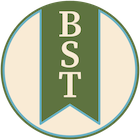Do you remember learning basic math in elementary school? It was all about simple counting. To that you added addition and subtraction. Once you were familiar with those, you graduated to multiplication and division. Then it was fractions, and on from there. It might not have made sense at the time, but in hindsight we see how these became building blocks for more advanced mathematics. Bible study is the same way. You start with basic Bible study tools and methods that you can then combine to take your studies to another level.
In a previous Bible study tip we looked at how to let Scripture speak for and interpret itself through the use of cross-references. Then, in another tip, we explored the use of Bible concordances for simple word and topical studies. What would happen if we combined these two methods? Well, that’s what we’re doing today. I want to show you how to combine tips you’ve already learned and how to get the most out of God’s Word with minimal tools. I call it the “Building Blocks” method.
So, without further ado, let’s jump in!
Growing in Bible study is about taking what you already know and adding to it to deepen your time in God's Word. Click To TweetBuilding Blocks Method: Explained
It’s easy to make Bible study more complicated than it needs to be. We believe we need all the best resources and tools to make sense of God’s Word. Nothing could be further from the truth. That is why I love using both cross-references and concordances in my Bible study. With nothing more than a Bible in hand, you can utilize both tools. On their own, you can study the Bible for hours without exhausting your study. Together, they deepen your knowledge of God’s Word.
Yet, there is a downside. When using your Bible’s concordance alone, you do not have an exhaustive list of how a word is used throughout Scripture. Instead, you only get the most pertinent passages.
An advantage of including cross-references is the ability to expand your study to related verses that aren’t mentioned in a concordance. Not only that, but you will also find other passages on the same topic, but that may not use the same word as in your concordance search. What better way to expand your topical study?! The same is true in reverse. A concordance can enhance your cross-reference study.
The idea behind the Building Blocks method is simple: start with one method and add another. In this instance, start with a concordance search and then include cross-references in your study.
The Building Blocks method is simple: start with one Bible study method and add another to go deeper. Click To TweetBuilding Blocks Method: In Practice
Now let’s walk through the steps for completing this building blocks study. We will start with the concordance and then move to the cross-references. 1 Thessalonians 4:3 will be our passage of study as we navigate the steps of this Bible study method.
For this is the will of God, your sanctification: that you abstain from sexual immorality (1 Thessalonians 4:3 ESV)
Step 1 – Find a Word to Study in the Concordance
The first step in the process is finding a word to study. In reading this verse, there appears to be an emphasis on defining sanctification as God’s will for believers. With this in mind, let us focus our study on the word “sanctification.” This will be the word we lookup in the concordance.
Step 2 – Get the Bible References from the Concordance
With our word selected, the next step is to flip to the back of our Bible and find sanctification in the concordance. Here is what I find in my Bible:
Sanctification — Romans 6:19, 22; 1 Corinthians 1:30; 1 Thessalonians 4:3 (our passage); 2 Thessalonians 2:13; 1 Peter 1:2
There are also cognate words for sanctification we would be wise to include in our study. They are as follows:
Sanctified — Exodus 29:43; John 17:19; Acts 20:32; 26:18; Romans 15:16; 1 Corinthians 1:2; 6:11; Hebrews 10:10
Sanctifies — Leviticus 20:8; Hebrews 2:11
Sanctify — Exodus 31:13; Leviticus 21:8; John 17:17; Ephesians 5:26; 1 Thessalonians 5:23; Hebrews 13:12
With a quick glance at these references we see that Romans, 1 Corinthians, and Hebrews will have a lot to say about this topic.
Step 3 – Read the References
The next step in the process is simple. Read all the references listed in the concordance. Be sure to read each verse within its context so you get a full view of what each biblical author is saying. This process will give us a feel for the word’s usage and meaning, as well as how we ought to apply it to our lives.
Step 4 – Lookup the Cross-References
As we read each passage, we should make note of the cross-references associated with them. We will want to read each of these cross-references to broaden our scope and understanding of the topic. Here are the cross-references for the verses listed in the concordance for “sanctification.”
1 Thessalonians 4:3 — Romans 6:19, 22; 1 Corinthians 1:30; 6:18; 2 Thessalonians 2:13; 1 Timothy 2:15; Hebrews 12:14; 1 Peter 1:2
Romans 6:19 — Romans 3:5; 6:13; 1 Corinthians 9:27
Romans 6:22 — Romans 6:18; 7:4; 1 Corinthians 7:22; 1 Peter 1:9; 2:16
1 Corinthians 1:30 — 1 Corinthians 1:2, 24; Jeremiah 23:5, 6; 33:16; 2 Corinthians 5:21; Philippians 3:9; Ephesians 1:7; Colossians 1:14; Romans 3:24
2 Thessalonians 2:13 — 2 Thessalonians 1:3; 1 Thessalonians 1:4; 4:3; 5:9; Deuteronomy 33:12; Ephesians 1:4; 2 Timothy 1:9
1 Peter 1:2 — Acts 2:23; Romans 8:29; 11:2; 1 Thessalonians 4:3; Hebrews 10:22; 12:24; 2 Peter 1:2; Daniel 4:1; Jude 2
With these cross-references notice that we have many of the same books mentioned as in our concordance search. We are narrowing down the key passages that deal with sanctification. So, not only will we have done a broad study, but we will know the key passages to turn to for future reference.
Step 5 – Lookup the Cross-References’ Cross-References
The next step in the process is to start going down the rabbit trail by looking up our cross-reference’s cross-references. Make note of them and then look them up individually. What you will find is significant overlap with passages you already looked up, in addition to other verses that further broaden the scope and understanding.
Step 6 – Compile Your Notes
The final step in the process is to compile your notes into something coherent so you can reference them at a later date. For example, you might note the key chapters that discuss sanctification. Such chapters would include: Romans 6; 1 Peter 1; and Hebrews 10 & 12. Other information would include a basic definition or summary of the word/topic, as well as any related words you found during your study. And don’t forget to make note of any application that needs to be made after studying your topic.
With nothing more than a Bible and it's cross-references & concordance, you can spend hours studying God's Word. Click To TweetBonus Step – Go in Reverse
Finally, this entire building blocks study can be done in reverse. Start with a passage and its cross-references. As you look up the cross-references, words may stand out that you want to study. When those words present themselves, use your concordance as an add-on to your cross-reference study. This is a slightly different take, but provides just as much depth in your Bible study.
Mix It Up
Bible study is all about using the tools available to you and making the most of them. It’s also about taking the skills you’ve learned and combining them to go deeper in the Word of God. That is the aim behind the Building Blocks method of Bible study. Hopefully this tip showed you just how that is possible using nothing more than what’s in your Bible.
This week take some time and complete a study using these two methods. What other methods do you think would work well together?
Weekly Study Prompts
This week, meditate and journal on the following passages:
- Monday – Nehemiah 7-8
- Tuesday – Nehemiah 9
- Wednesday – Nehemiah 10
- Thursday – Nehemiah 11
- Friday – Nehemiah 12
- Memory Verses: Nehemiah 6:9; 9:6


